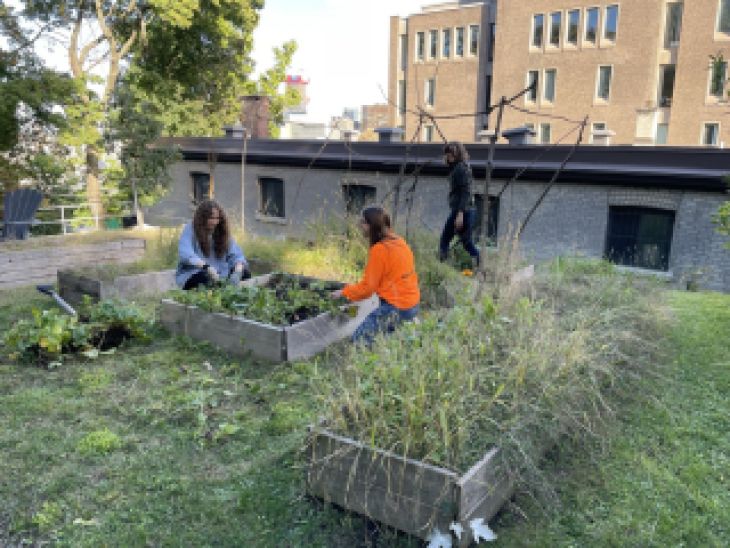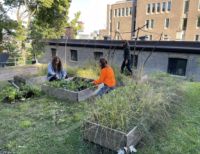For many Canadians, one of the most visible climate impacts is on the availability and cost of the food we eat as climate change, global crises and profit-driven food companies have combined to drive food insecurity. Amid this crisis, students are sowing seeds of change on university campuses across the country, including at McGill.
Student-led food initiatives such as campus gardens, food waste diversion projects, and community food security partnerships are on the rise and are a proven way of localizing climate action and transforming food systems.
While student-led initiatives may not directly solve the crises we face, researchers at McGill University found they can transform students’ mindsets and develop their skills and confidence as agents of larger-scale change.

Research on students participating in student-led campus- and community-based initiatives shows how these activities can support transformative opportunities for learning about, and acting on, food security and climate change.
The researchers found that initiatives that only focus on the technical or scientific aspects of food security and climate change have limited educational impact on student participants. Rather, building critical and transformative understandings of food systems in students appears to hinge on a few key practices that some, but not all, student-led initiatives address.
About the study
Critical food systems education in university student-run food initiatives: learning opportunities for food systems transformation by Zoë Y. Deskin and Blane Harvey was published in Frontiers in Sustainable Food Systems














